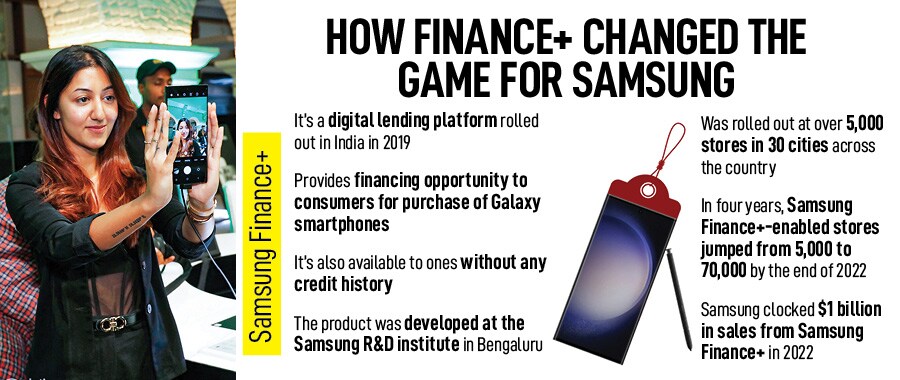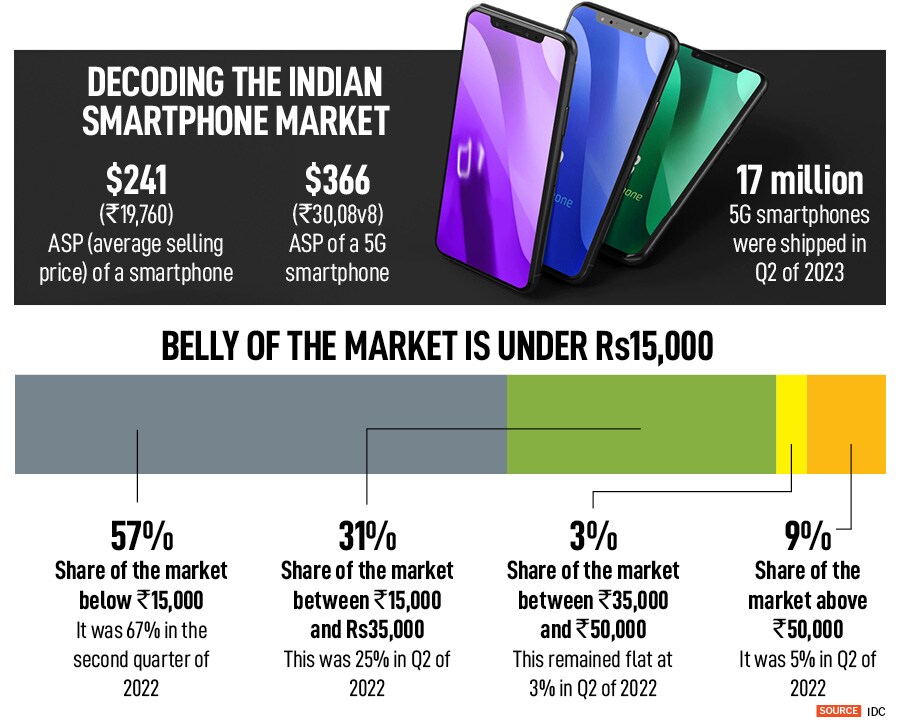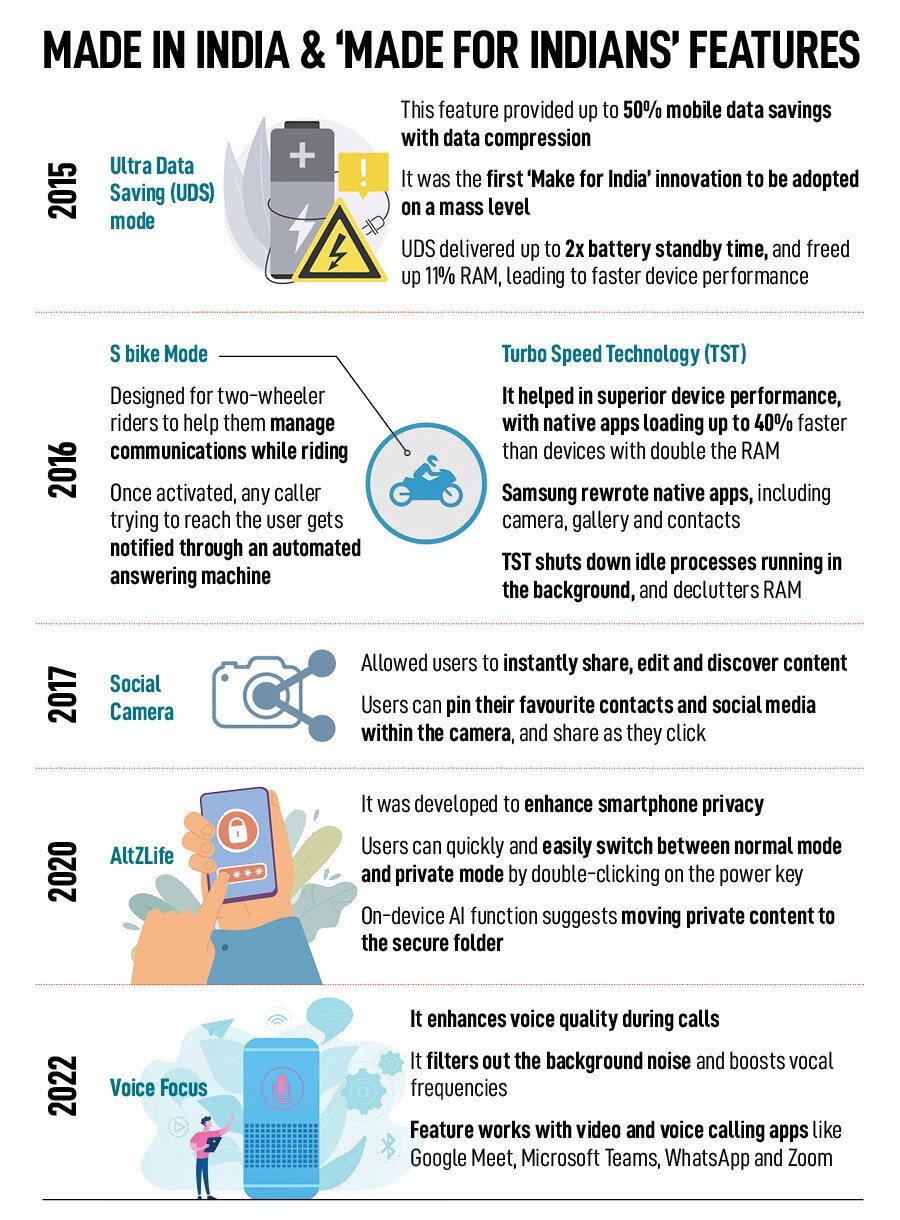
How Samsung protected its turf in India by going back to the basics of warfare
Over the last decade, Samsung warded off a fierce fight from a handful of desi and multinational rivals such as Nokia, Micromax and Xiaomi. Can it now keep Vivo and Apple at bay and increase its gains?
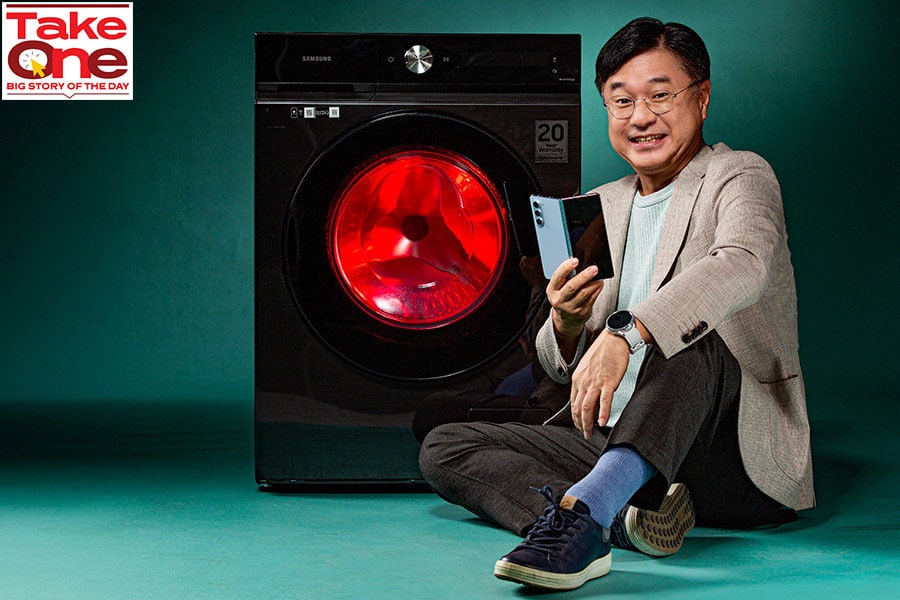 JB Park, President and CEO of Samsung Electronics Southwest Asia Image: Madhu Kapparath
JB Park, President and CEO of Samsung Electronics Southwest Asia Image: Madhu Kapparath
Seoul, November 2018. “Oh, me?” JB Park was startled by the suddenness of the news. “Am I ready?” asked the handset pro, who suddenly started behaving like an amateur golf player. “Yes, JB. You are always ready,” came a prompt reply from DJ Koh, who was then president of mobile division at Samsung Electronics. Koh was in the midst of reshuffling the India team, and had immense confidence in JB. “You'll be off to India next month,” he declared during a lunch meeting with his young Korean employee.
A Samsung veteran for over two decades, Jongbum Park, popularly known as JB, had been handling the mobile division at Southwest Asia and parts of Southeast Asia since 2012. Over six years into the role, umpteen visits to India, and a diligent warrior who had learnt the craft from the best at the headquarters, JB was more than familiar with the country where he was about to start a new innings. Familiarity, though, was of little comfort. JB’s predecessor in India had just completed 12 months. “Usually, it is three to four years before they (headquarters) swap people. So, it was too soon,” underlines JB, who, during the lunch duration, was haunted by one overwhelming question: “Am I ready?”
Back in 2018 in India, it was the right question to ask. JB’s familiarity was not of much use. India was no longer the land of Nokia. Though Samsung, which started operations in India in 1995, toppled the Finnish handset major to lead the Indian market with a thumping 33 percent market share in 2012, a bunch of homegrown and foreign players were fast emerging as potent challengers. In 2012, Micromax had cornered 8 percent of the market and was third in the pecking order after Microsoft. With a differentiated product and positioning, BlackBerry too was coming up as a serious threat and had 6 percent share, according to data shared by global mobile and technology market research firm Counterpoint. Fifth in the stacking was Karbonn, another desi player with a 5 percent share.





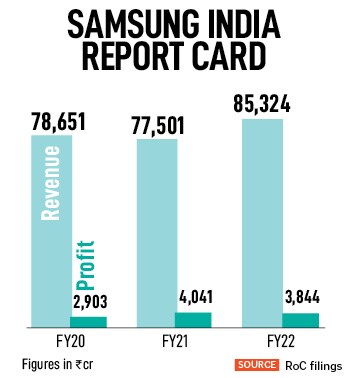 The fight and the churn among the top five players intensified over the next two years. Jio and Xiaomi joined the party in 2016 by displacing Lava and Lenovo. The next year, there was a deluge of Chinese players, and a major shake-up in the stacking. Xiaomi pipped Micromax to become the second-biggest brand with a 19 percent market share. The next two players were new entrants: Vivo and Oppo. Samsung was still the biggest.
The fight and the churn among the top five players intensified over the next two years. Jio and Xiaomi joined the party in 2016 by displacing Lava and Lenovo. The next year, there was a deluge of Chinese players, and a major shake-up in the stacking. Xiaomi pipped Micromax to become the second-biggest brand with a 19 percent market share. The next two players were new entrants: Vivo and Oppo. Samsung was still the biggest.
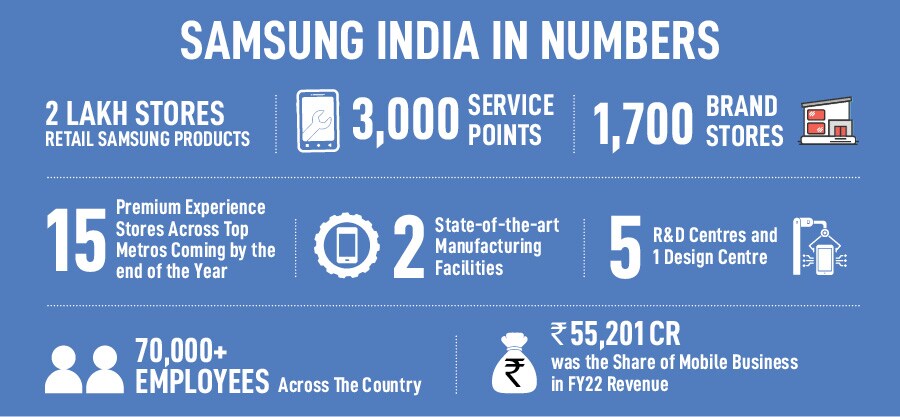
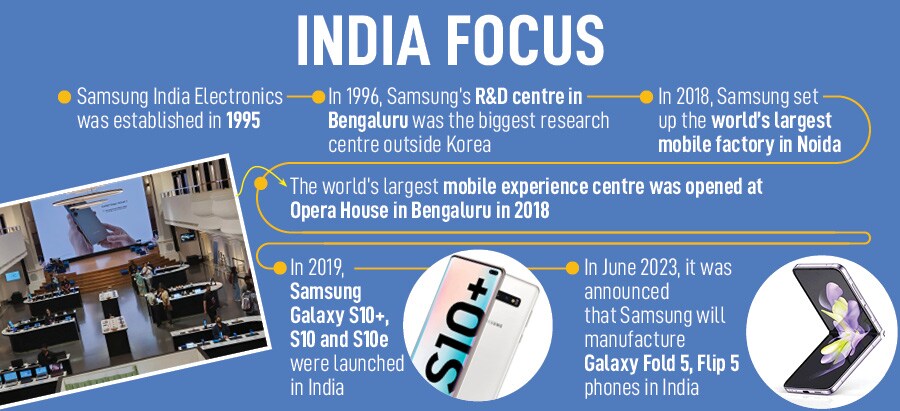
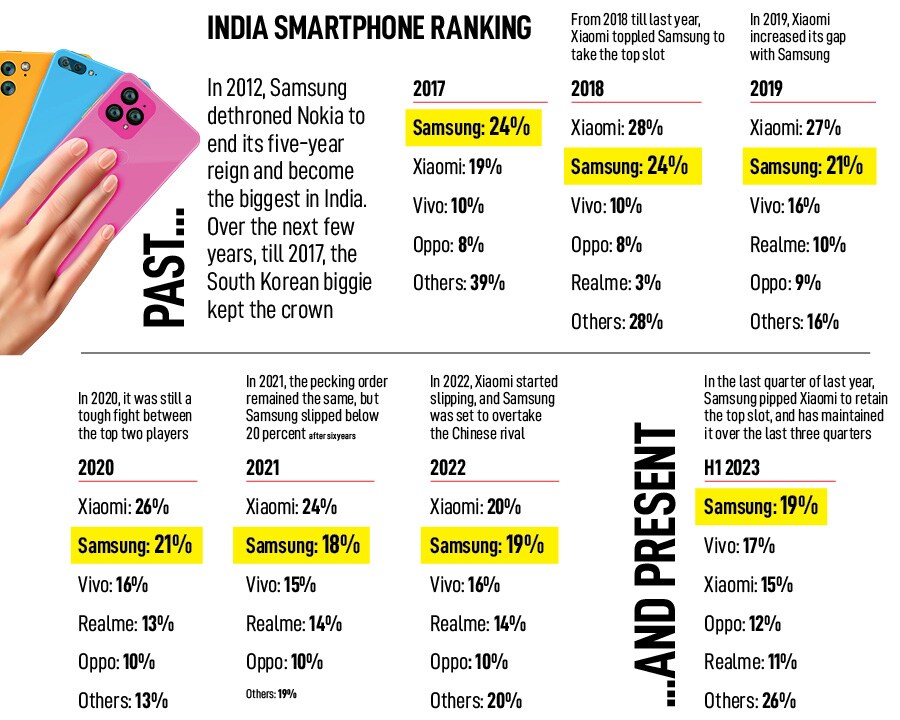
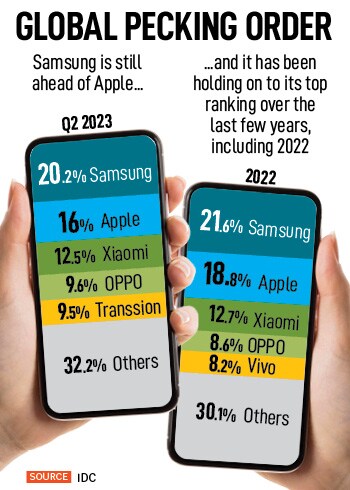 Samsung’s fight, though, was multi-dimensional and waged on multiple fronts. Raju Pullan was one such veteran fighter. The senior vice president (mobile division) of Samsung India, who joined the Korean electronics giant in 2008, had seen enough competition over the last decade. “We've seen many moons of competition,” he says, adding that one of the things that helped Samsung survive was innovation. “It kept us ahead of the curve,” he adds, underlining that the brand kept adapting and evolving in its journey in India. In fact, competition helped. Take, for instance, the bunch of desi players like Micromax, Lava, Karbonn and Intex, who swept the hinterland and garnered market share. The Indian rivals, he added, taught Samsung the need to recalibrate its rural strategy and go deep and wide. With hyper-aggressive and unrelenting Chinese rivals, though, Pullan innovated his style of fight.
Samsung’s fight, though, was multi-dimensional and waged on multiple fronts. Raju Pullan was one such veteran fighter. The senior vice president (mobile division) of Samsung India, who joined the Korean electronics giant in 2008, had seen enough competition over the last decade. “We've seen many moons of competition,” he says, adding that one of the things that helped Samsung survive was innovation. “It kept us ahead of the curve,” he adds, underlining that the brand kept adapting and evolving in its journey in India. In fact, competition helped. Take, for instance, the bunch of desi players like Micromax, Lava, Karbonn and Intex, who swept the hinterland and garnered market share. The Indian rivals, he added, taught Samsung the need to recalibrate its rural strategy and go deep and wide. With hyper-aggressive and unrelenting Chinese rivals, though, Pullan innovated his style of fight.